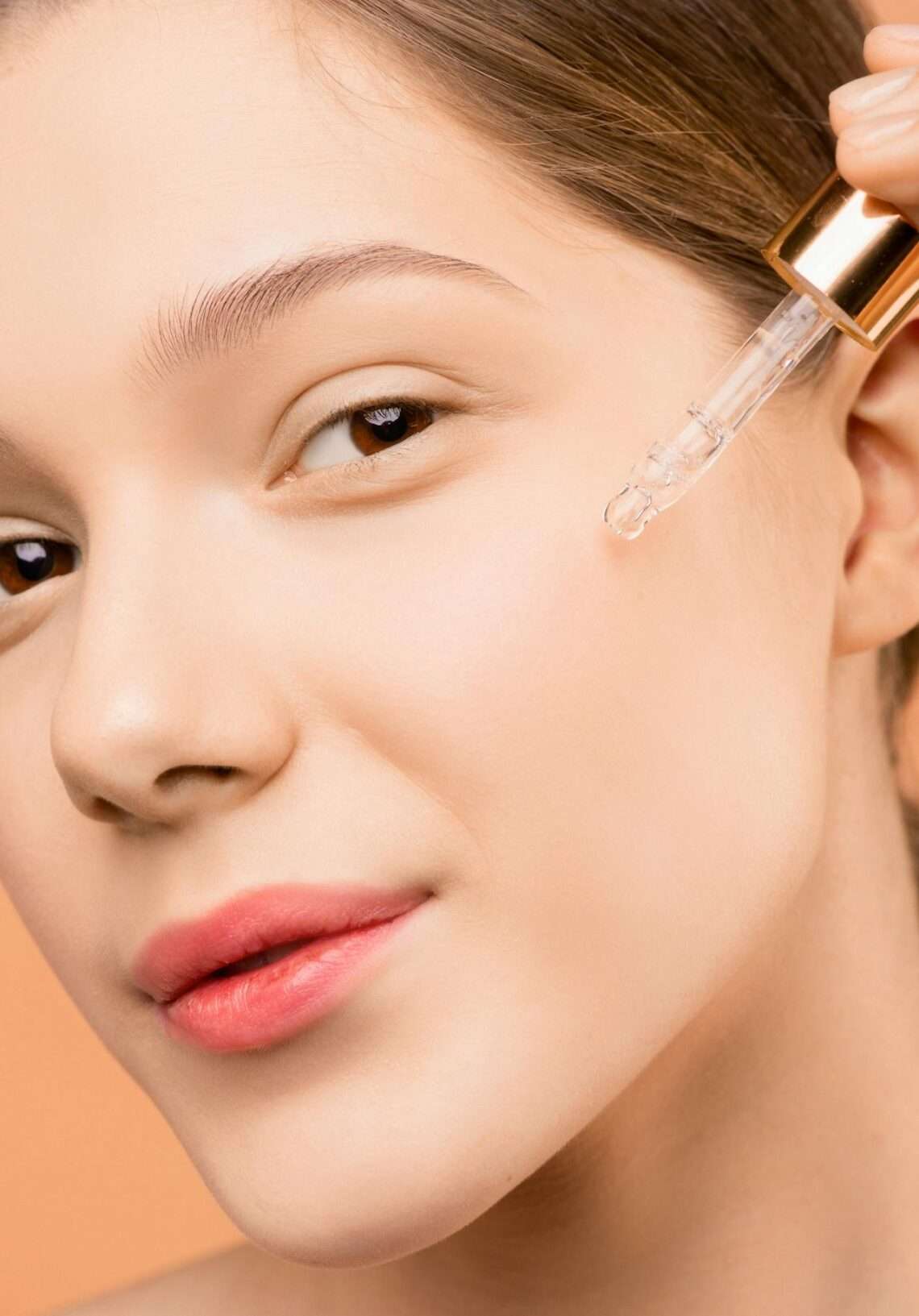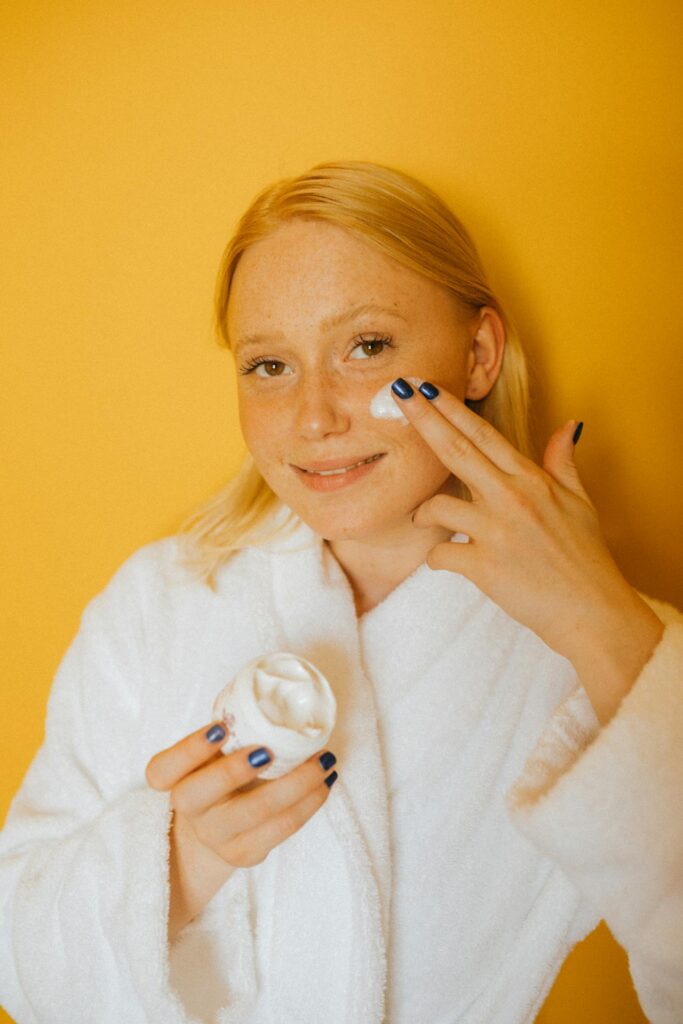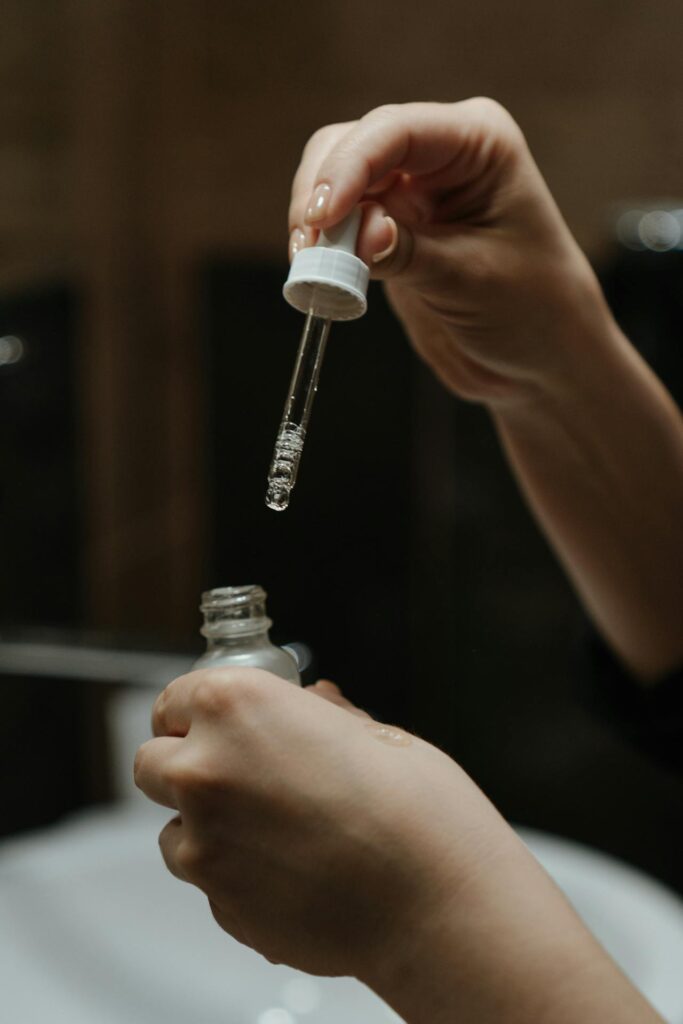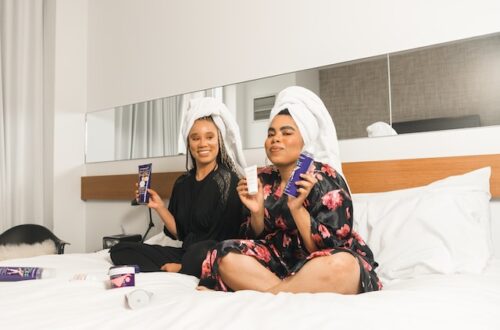
Starting Your Skincare Journey: The 10 Essential Products You Need
Embarking on a skincare journey is like going on an adventure for your skin! It’s all about taking care of your skin in a way that makes it happy and healthy. Just like you have habits for keeping your teeth clean, a skincare journey is about building habits to keep your skin clean, moisturized, and protected. It’s not just about achieving a flawless complexion; it’s also about nourishing your skin, protecting it from environmental stressors, and embracing the beauty of your natural self.
In this journey, you get to learn about your skin and what makes it feel good. You try different products and routines to see what works best for you. It’s like a fun experiment where you get to pamper yourself and feel good about taking care of your skin.
At its core, a skincare journey is about fostering a relationship with your skin, one built on patience, consistency, and care. It’s about finding joy in the daily rituals of cleansing, moisturizing, protecting, and relishing in the moments of self-indulgence through masks, serums, and treatments.
Taking care of your skin is not just about looking good; it’s also about feeling good. It’s about giving yourself a little love and attention every day. So, let’s get started on this exciting adventure to happy, healthy skin!
Starting a skincare journey can feel overwhelming with the myriad of products available, but focusing on a few essential items can simplify the process and lay a solid foundation for healthy skin. Here are 10 essential products you need to build a solid foundation for a healthy, glowing complexion.
Cleansers: The foundation of skincare
A good cleanser is the foundation of any skincare routine. It’s important to choose one that suits your skin type and addresses your specific concerns. Here’s a breakdown of why a gentle cleanser is essential:
- Removes Dirt and Impurities: Throughout the day, your skin accumulates dirt, oil, pollutants, and bacteria. A gentle cleanser effectively removes these impurities, preventing clogged pores, breakouts, and dullness.
- Preserve Natural Moisture Barrier: Harsh cleansers can strip away the skin’s natural oils, leaving it dry, tight, and vulnerable to irritation. A gentle cleanser, formulated with ingredients like glycerin or hyaluronic acid, cleanses without disrupting the skin’s moisture barrier, helping to maintain hydration and prevent moisture loss.
- Prepares the Skin for Treatment: Cleansing prepares the skin to better absorb the active ingredients in subsequent skincare products, such as serums, moisturizers, and treatments. A clean canvas allows these products to penetrate more effectively, maximizing their benefits.
- Promotes Healthy Skin: By keeping the skin clean and balanced, a gentle cleanser supports overall skin health. It helps to prevent issues like acne, inflammation, and sensitivity, promoting a clear, radiant complexion.
When choosing a cleanser, consider factors such as your skin type (dry, oily, combination, sensitive), any specific concerns you want to address (acne, aging, redness), and personal preferences regarding texture and fragrance. Aim for a pH-balanced formula that effectively cleanses while respecting the skin’s natural balance.
Moisturizers: Hydrating and nourishing your skin
Moisturizer is indeed a vital component of any skincare routine, serving to hydrate and protect the skin. Here’s why it’s important and how to choose the right one:
- Hydrates the Skin: Moisturizers help replenish the skin’s moisture content, preventing dryness and dehydration. This is crucial for maintaining skin health and preventing issues like flakiness, tightness, and irritation.
- Locks in Moisture: A good moisturizer forms a protective barrier on the skin’s surface, sealing in moisture and preventing water loss throughout the day. This helps keep the skin hydrated and supple, even in harsh environmental conditions.
- Tailored to Skin Type: Different skin types have varying moisture needs. For oily skin, lightweight, oil-free moisturizers are ideal to hydrate without adding excess oiliness. Dry skin benefits from richer, more emollient formulas that provide intense hydration. Those with sensitive skin should opt for gentle, fragrance-free moisturizers to avoid irritation.
- Daytime vs. Nighttime Formulas: During the day, lightweight, non-comedogenic moisturizers are ideal as they absorb quickly and won’t interfere with makeup application. These formulas often contain added ingredients like antioxidants or SPF for extra protection against environmental damage. For nighttime hydration, consider using a richer, more occlusive moisturizer to replenish the skin’s moisture levels while you sleep.
When selecting a moisturizer, consider your skin type, any specific concerns you want to address (such as anti-aging or sensitivity), and your personal preferences regarding texture and ingredients.
Look for key ingredients like hyaluronic acid, glycerin, ceramides, and antioxidants, which help to hydrate, repair, and protect the skin. Always patch-test new products and introduce them gradually into your routine to ensure they’re compatible with your skin.
Sunscreens: Shielding your skin from harmful rays
Sunscreen is indeed a crucial component of any skincare routine, offering protection against the damaging effects of ultraviolet (UV) radiation from the sun. Here’s why it’s essential and how to choose the right one:
- UV Protection: Sunscreen forms a barrier on the skin’s surface that helps to absorb or reflect UV radiation, preventing it from penetrating into deeper layers of the skin. This protects against sunburn (caused by UVB rays) and skin damage (caused by UVA rays), including premature aging, wrinkles, dark spots, and sagging skin.
- Skin Cancer Prevention: Prolonged exposure to UV radiation increases the risk of developing skin cancer, including melanoma, basal cell carcinoma, and squamous cell carcinoma. Using sunscreen daily, along with other sun protection measures, helps reduce this risk by minimizing UV damage to the skin.
- Broad-Spectrum Protection: Choose a sunscreen labeled as “broad-spectrum,” which means it protects against both UVA and UVB rays. UVB rays primarily cause sunburn, while UVA rays penetrate deeper into the skin and contribute to premature aging and skin cancer. Broad-spectrum sunscreens offer comprehensive protection against both types of UV radiation.
- SPF 30 or Higher: The Sun Protection Factor (SPF) indicates how long the sunscreen protects the skin from UVB rays compared to unprotected skin. Dermatologists recommend using a sunscreen with an SPF of 30 or higher for adequate protection. SPF 30 filters out approximately 97% of UVB rays, while higher SPFs offer slightly more protection.
- Regular Application: Apply sunscreen generously to all exposed skin areas, including the face, neck, ears, hands, and any other uncovered areas. Reapply every two hours, or more frequently if swimming or sweating heavily, to maintain effectiveness. Don’t forget to apply sunscreen even on cloudy days, as UV rays can penetrate clouds and cause skin damage.
When choosing a sunscreen, consider your skin type, preferences, and any specific concerns (e.g., sensitivity, acne-prone skin). Look for non-comedogenic formulas that won’t clog pores or cause breakouts, and consider additional features such as water resistance or tinted formulations for added benefits. Incorporating sunscreen into your daily skincare routine is essential for maintaining healthy, protected skin for years to come.
Serums: Targeted treatments for specific skin concerns
Serums are indeed powerhouse products in skincare routines, delivering concentrated doses of active ingredients to address specific concerns effectively. Here’s why they’re essential and how to choose the right serum for your skin:
- Targeted Treatment: Serums are formulated with high concentrations of active ingredients, allowing them to penetrate deeply into the skin and target specific concerns more effectively than other skincare products. Whether you’re dealing with dark spots, fine lines, uneven texture, or dehydration, there’s a serum designed to address your unique skincare needs.
- Versatile Formulations: Serums come in various formulations to suit different skin types and concerns. Look for serums containing ingredients like:
- Vitamin C: A powerful antioxidant that brightens the skin, fades dark spots, and protects against environmental damage.
- Hyaluronic Acid: A humectant that attracts moisture to the skin, plumping and hydrating for a smoother, more youthful appearance.
- Niacinamide (Vitamin B3): Helps improve skin texture, reduce redness, minimize pores, and regulate oil production.
- Retinol (Vitamin A): Stimulates collagen production, reduces the appearance of wrinkles, and improves skin texture and tone.
- Peptides: Boost collagen synthesis, firm the skin, and minimize the appearance of fine lines and wrinkles.
- Customized Solutions: Choose a serum that addresses your specific skincare goals and concerns. For example, if you’re looking to brighten dark spots and even out skin tone, opt for a vitamin C serum. If hydration is your primary concern, look for a serum containing hyaluronic acid. If you’re targeting multiple concerns, consider layering serums or using a multitasking serum that addresses several issues at once.
- Integration into Skincare Routine: Serums are typically applied after cleansing and toning, but before moisturizing. This allows the active ingredients to penetrate deeply into the skin and work more effectively. Apply a few drops of serum to clean, dry skin, gently patting and pressing it into the skin until fully absorbed. Follow up with moisturizer and sunscreen during the day for optimal results.
Choose a serum that suits your skin type, concerns, and preferences, and use it consistently to see the best results over time.
Exfoliants: Removing dead skin cells for a brighter complexion
Exfoliation is indeed an important step in any skincare routine, helping to remove dead skin cells and reveal smoother, brighter skin underneath. Here’s why it’s essential and how to choose the right exfoliant for your skin:
- Sloughing Away Dead Skin Cells: Over time, dead skin cells accumulate on the skin’s surface, leading to dullness, rough texture, and clogged pores. Exfoliation helps to gently remove these dead cells, revealing fresher, healthier skin beneath.
- Unclogging Pores: Exfoliation can help prevent and treat clogged pores, blackheads, and acne breakouts by removing the buildup of debris, oil, and bacteria that can contribute to pore blockages.
- Promoting Cell Turnover: Regular exfoliation encourages the skin’s natural renewal process, promoting the production of new skin cells and collagen. This can improve skin texture, reduce the appearance of fine lines and wrinkles, and enhance overall skin radiance.
- Choosing the Right Exfoliant: There are two main types of exfoliants: physical and chemical.
- Physical Exfoliants: These include scrubs, brushes, or exfoliating tools that physically slough away dead skin cells. Choose a physical exfoliant with gentle, rounded particles to avoid causing micro-tears or irritation on the skin’s surface. Use gentle, circular motions when applying a physical exfoliant to avoid over-exfoliating.
- Chemical Exfoliants: Chemical exfoliants contain ingredients like alpha hydroxy acids (AHAs) or beta hydroxy acids (BHAs) that dissolve the bonds between dead skin cells, allowing them to be easily shed from the skin’s surface. AHAs, such as glycolic acid or lactic acid, are effective for dry or sun-damaged skin, while BHAs, such as salicylic acid, are beneficial for oily or acne-prone skin.
- Frequency: Exfoliate 2-3 times a week, adjusting the frequency based on your skin’s tolerance and sensitivity. Over-exfoliating can lead to irritation, redness, and inflammation, so it’s essential to listen to your skin and avoid excessive scrubbing or chemical exfoliation.
Choose the exfoliant that best suits your skin type and concerns, and remember to follow up with moisturizer and sunscreen to protect and hydrate the skin after exfoliation.
Masks: Weekly treatments for deep nourishment and rejuvenation
Using a mask as part of your skincare routine can indeed provide various benefits, from hydration and purification to targeted treatment. Here’s why incorporating a weekly masking session can be beneficial and how to choose the right type of mask for your skin:
- Hydration: Masks infused with hydrating ingredients like hyaluronic acid, glycerin, or botanical extracts can provide an extra boost of moisture to dry or dehydrated skin. These masks help replenish moisture levels, leaving the skin feeling soft, plump, and refreshed.
- Purification and Detoxification: Clay masks are excellent for absorbing excess oil, unclogging pores, and removing impurities from the skin. They can help detoxify and clarify the skin, leaving it feeling clean, balanced, and refreshed. Look for masks containing ingredients like kaolin clay, bentonite clay, or charcoal for effective purification.
- Targeted Treatment: Masks formulated with specific ingredients can target various skincare concerns, such as acne, dullness, uneven texture, or aging. Choose a mask that addresses your specific needs, whether it’s brightening, exfoliating, soothing, or firming.
- Relaxation and Self-Care: Using a mask can be a relaxing and indulgent experience, providing an opportunity to unwind and pamper yourself after a long day. Set aside some time each week to treat yourself to a masking session, allowing the mask to work its magic while you sit back, relax, and recharge.
When choosing a mask, consider your skin type, concerns, and preferences. If you have dry or sensitive skin, opt for hydrating or soothing masks with gentle, nourishing ingredients. For oily or acne-prone skin, look for purifying masks that help control excess oil and minimize breakouts. Sheet masks are convenient and easy to use, while traditional clay or cream masks offer customizable treatment options.
Regardless of the type of mask you choose, be sure to follow the instructions for application and removal carefully. Avoid leaving the mask on for longer than recommended, as this can lead to irritation or dehydration. After removing the mask, follow up with your regular skincare routine, including moisturizer and sunscreen, to lock in hydration and protect the skin.
Incorporating a weekly masking session into your skincare routine can help maintain healthy, glowing skin and provide a moment of relaxation and self-care in your busy schedule. Experiment with different formulations and ingredients to find the masks that work best for you, and enjoy the benefits of a weekly masking session for healthy, glowing skin.
Eye Creams: Banishing dark circles and puffiness
Eye cream is indeed crucial for addressing the unique needs of the delicate skin around the eyes. Here’s why it’s essential and how to choose the right one:
- Hydration: The skin around the eyes is thinner and more prone to dryness compared to the rest of the face. Eye cream provides targeted hydration to this delicate area, helping to plump up fine lines, smooth out wrinkles, and improve skin texture.
- Depuffing: Lack of sleep, allergies, and other factors can contribute to puffiness around the eyes. Many eye creams contain ingredients like caffeine or peptides that help to reduce puffiness by improving circulation and draining excess fluid from the under-eye area.
- Dark Circle Reduction: Dark circles can be caused by a variety of factors, including genetics, fatigue, and sun damage. Eye creams formulated with ingredients like vitamin C, retinol, or niacinamide can help to brighten the under-eye area and diminish the appearance of dark circles over time.
- Gentle Application: The skin around the eyes is extremely delicate and prone to damage. When applying eye cream, use gentle, tapping motions with your ring finger to avoid pulling or tugging on the skin. Start from the inner corner of the eye and work your way outwards, being careful not to apply too much pressure.
- Choosing the Right Formula: Look for an eye cream with a gentle, nourishing formula that is specifically designed for the delicate eye area. Avoid products that contain harsh or irritating ingredients, such as fragrance or alcohol, which can cause sensitivity or irritation. Instead, opt for gentle, hydrating ingredients like hyaluronic acid, peptides, antioxidants, and botanical extracts.
By incorporating a gentle, nourishing eye cream into your skincare routine, you can effectively hydrate, depuff, and brighten the delicate skin around your eyes, helping to keep it looking youthful, refreshed, and radiant.
Toner: Balance skin pH and remove residue
Toner can indeed be a beneficial addition to a skincare routine, offering several potential advantages for the skin. Here’s why it can be useful and how to choose the right one:
- pH Balancing: After cleansing, the skin’s pH levels can become imbalanced, particularly if you’ve used a harsh or alkaline cleanser. Toners help to restore the skin’s natural pH, which is slightly acidic, by removing any residual cleanser and impurities while also prepping the skin for subsequent skincare products.
- Removing Residue: Even after cleansing, some traces of dirt, makeup, or cleanser may remain on the skin. Toners provide an additional step to ensure the skin is thoroughly clean, which can help prevent clogged pores, breakouts, and dullness.
- Hydration and Soothing: While traditional toners often contained alcohol, which can be drying and irritating for some skin types, many modern toners are alcohol-free and formulated with hydrating and soothing ingredients. Look for toners infused with ingredients like witch hazel, rose water, aloe vera, glycerin, or hyaluronic acid to hydrate, soothe, and refresh the skin without stripping away its natural moisture.
- Skin Type Considerations: Choose a toner that suits your skin type and concerns. If you have dry or sensitive skin, opt for a gentle, alcohol-free formula that provides hydration and soothing benefits. For oily or acne-prone skin, look for toners that contain ingredients like salicylic acid or tea tree oil to help control excess oil production and minimize breakouts.
- Integration into Skincare Routine: After cleansing, apply toner to the skin using a cotton pad or your hands, gently sweeping it across the face and neck. Follow up with your preferred serums, moisturizers, and treatments while the skin is still slightly damp to help lock in moisture and maximize absorption.
While toner may not be essential for everyone, it can be a beneficial step in a skincare routine, particularly for those looking to rebalance pH levels, remove residual impurities, and hydrate and soothe the skin.
Lip Balm:Keep lips soft and hydrated.
Lip balm is an essential part of any skincare routine, helping to keep the lips soft, smooth, and hydrated. Here’s why it’s important and how to choose the right one:
- Hydration: The skin on the lips is thin and delicate, making it prone to dryness, chapping, and cracking, particularly in harsh weather conditions or dry climates. Lip balm provides a protective barrier that locks in moisture and prevents moisture loss, keeping the lips hydrated and comfortable.
- Nourishment: In addition to providing hydration, lip balms often contain nourishing ingredients like shea butter, coconut oil, cocoa butter, or vitamin E that help to soften, soothe, and repair dry, damaged lips. These emollients create a smooth, velvety texture and provide long-lasting moisture for healthier-looking lips.
- Protection: Lip balm can also offer protection against environmental stressors like sun exposure, wind, and cold temperatures, which can exacerbate dryness and lead to chapping and irritation. Look for lip balms with added SPF for daytime use to shield the lips from harmful UV rays.
- Convenience: Lip balm is portable and easy to apply, making it convenient for on-the-go hydration and touch-ups throughout the day. Keep a lip balm handy in your purse, pocket, or desk drawer to ensure your lips stay moisturized wherever you go.
- Variety of Formulations: Lip balms come in various formulations, including traditional sticks, pots, tubes, and squeezable tubes, as well as tinted or flavored options for added color and flavor. Choose a lip balm that suits your preferences in terms of texture, packaging, and additional features like SPF or tint.
When choosing a lip balm, look for a nourishing formula enriched with emollients and other hydrating ingredients to provide lasting moisture and protection for your lips. Apply lip balm as needed throughout the day, especially before bedtime, to keep your lips soft, smooth, and hydrated year-round.
Spot treatments: Combat blemishes and imperfections
Spot treatments are indeed a helpful addition to a skincare arsenal, providing targeted treatment for blemishes and acne. Here’s why they’re important and how to choose the right one:
- Targeted Treatment: Spot treatments are specifically formulated to address individual blemishes or acne spots, delivering potent ingredients directly to the affected area. This allows for more effective treatment without affecting the surrounding skin.
- Acne-Fighting Ingredients: Look for spot treatments containing active ingredients like salicylic acid or benzoyl peroxide, which are known for their ability to unclog pores, reduce inflammation, and kill acne-causing bacteria. Salicylic acid helps to exfoliate dead skin cells and clear out pores, while benzoyl peroxide works as an antimicrobial agent to kill bacteria and reduce inflammation.
- Quick Results: Spot treatments can help to reduce the size and redness of blemishes quickly, often within a few hours or overnight. By targeting the source of the breakout directly, spot treatments can help to speed up the healing process and minimize the appearance of acne.
- Prevention: In addition to treating existing blemishes, spot treatments can also be used as a preventative measure to stop breakouts before they fully develop. Applying a spot treatment to areas prone to acne or congestion can help to keep pores clear and prevent future breakouts from occurring.
- Usage Guidelines: It’s essential to use spot treatments as directed and to avoid over-application, as excessive use can lead to dryness, irritation, or peeling. Apply a small amount of the spot treatment directly to the blemish using a clean fingertip or cotton swab, and allow it to dry before applying any other skincare products.
When choosing a spot treatment, consider your skin type, sensitivity, and the severity of your acne. Start with a lower concentration of active ingredients and gradually increase as needed to minimize the risk of irritation. If you have sensitive skin or are prone to dryness, opt for spot treatments with gentler formulations or consult with a dermatologist for personalized recommendations.
Overall:
Remember, consistency is key when it comes to skincare. Start with these essential products, and gradually incorporate additional steps or treatments as needed based on your skin’s response and specific concerns. Additionally, always patch-test new products and consult with a dermatologist if you have any questions or concerns about your skincare routine.


You May Also Like

Moisturizer vs Serum: Which is Best For Anti-Aging?
21 November 2023
Building Beauty: Choosing the Right Foundation for Your Skin
12 August 2024